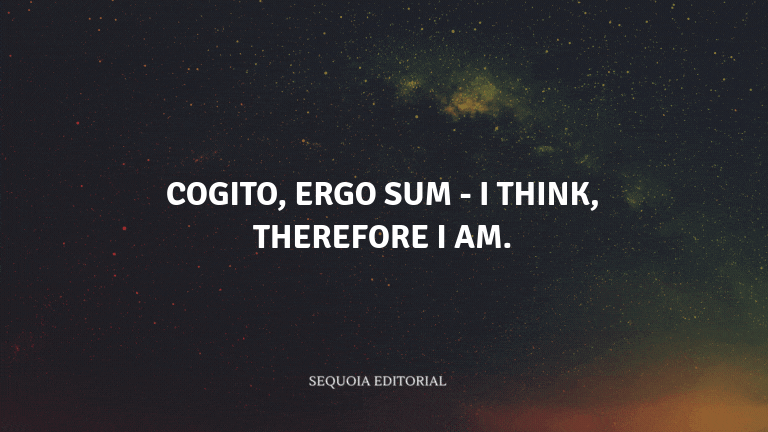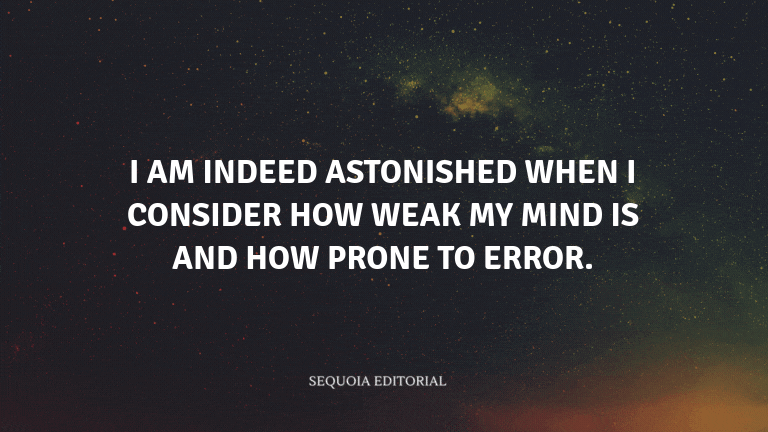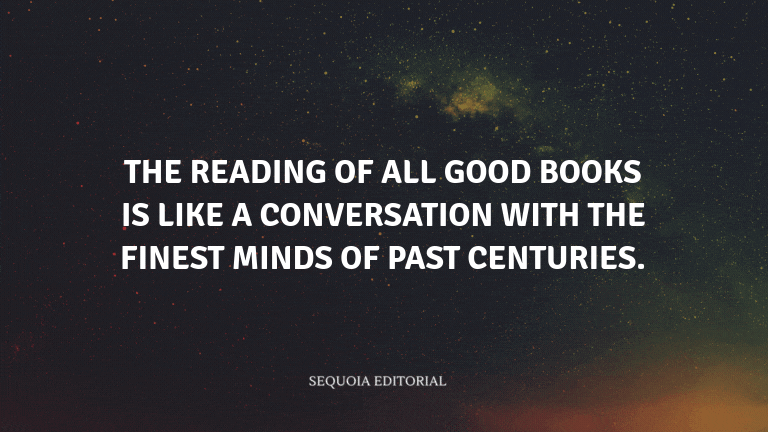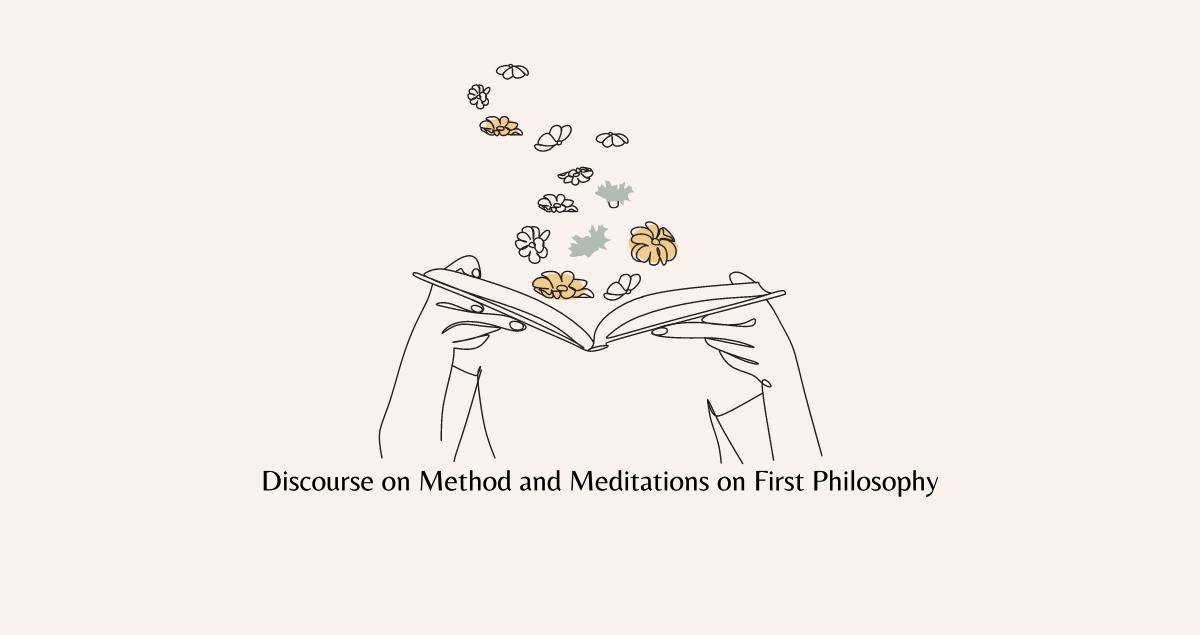Discourse On Method And Meditations On First Philosophy is about a young man's quest for certainty in knowledge and his journey through doubt. René Descartes, the French philosopher, explores the nature of reality, the existence of God, and the distinction between the mind and the body. His search leads to a groundbreaking approach to philosophy which lays the foundation for modern Western thought.
Table of Content
Discourse On Method And Meditations On First Philosophy Book Summary
René Descartes, a young philosopher and mathematician, is troubled by the uncertainty of knowledge. He embarks on a quest for truth and certainty that leads him through profound doubt and self-examination.
In his Discourse on Method, Descartes outlines his famous maxim, "I think, therefore I am," as the foundation for his search for indubitable knowledge. He reflects on his radical skepticism and the need to doubt everything that is not absolutely certain.
As he progresses, Descartes introduces his method of doubt, which serves to strip away false beliefs and reveal the core of what can be known with certainty. He questions the reliability of the senses and the possibility of being deceived by an evil demon.
Through his 'wax argument,' Descartes illustrates the distinction between primary and secondary qualities, providing insight into the nature of reality and perception. He establishes the foundation for a mechanistic view of the universe.
The Meditations on First Philosophy delve deeper into metaphysical questions, as Descartes contemplates the existence of God and the distinction between the mind and the body.
He argues for the existence of a benevolent God, using the ontological argument and the existence of clear and distinct ideas. This provides a secure basis for knowledge and the rejection of the evil demon's deception.
Descartes then addresses the mind-body problem, proposing that mind and body are distinct substances, yet they interact through the pineal gland. This theory lays the groundwork for modern dualism.
His doctrine of innate ideas and the role of the intellect in discovering truth contrasts with the empiricist view, influencing future debates in epistemology.
Princess Elisabeth of Bohemia challenges Descartes' dualism, leading to further reflections on the nature of the union between mind and body. This dialogue illuminates the complexity of their interaction.
Descartes concludes with a synthesis of his method and metaphysics, asserting that the pursuit of knowledge should be illuminated by reason and led by the clear and distinct perception of ideas.
He lays the groundwork for a new scientific approach, emphasizing the importance of analysis, synthesis, and the enumeration of all possible outcomes to solve complex problems.
René Descartes' "Discourse on Method and Meditations on First Philosophy" revolutionizes philosophical thinking, setting the stage for modern rationalism and foundationalism. His rigorous pursuit of truth through doubt and his methodical approach to philosophy have had a lasting impact on Western thought.
Discourse On Method And Meditations On First Philosophy Quotes
- Cogito, ergo sum - I think, therefore I am.

- I am indeed astonished when I consider how weak my mind is and how prone to error.

- The reading of all good books is like a conversation with the finest minds of past centuries.

Discourse On Method And Meditations On First Philosophy Ending Explained
At the end of Discourse On Method And Meditations On First Philosophy, Descartes has navigated through his doubts to find a firm foundation for knowledge.
He concludes that the existence of a benevolent God guarantees the truth of clear and distinct ideas and provides a resolution to the problem of radical skepticism.
Descartes' mind-body dualism, along with his method of doubt and the cogito argument, marks a pivotal moment in the history of philosophy, shaping the future of epistemology, metaphysics, and the scientific method.
Characters in book Discourse On Method And Meditations On First Philosophy
- René Descartes: The young French philosopher and mathematician who is the central figure in the book. He is the author and narrator who shares his philosophical reflections and doubts.
- Martin: Descartes' fictional companion in the Discourse, with whom he discusses his philosophical ideas and the pursuit of knowledge.
- The Meditator: The narrative voice through which Descartes presents his Meditations on First Philosophy, reflecting on the nature of existence, truth, and knowledge.
- God: A central concept in Descartes' work, as he examines the existence of God and the role of a perfect being in guaranteeing the truth of clear and distinct ideas.
- The Evil Demon: A hypothetical being in Descartes' work that represents a powerful deceiver, used to question the certainty of knowledge.
- Princess Elisabeth of Bohemia: A correspondent of Descartes who challenges his ideas on the mind-body relationship, and with whom he engages in philosophical discussions.
Key Lessons
- Critical Doubt Yields Understanding: Embracing doubt and subjecting one's beliefs to rigorous skepticism can lead to clearer and more certain knowledge.
- Seek Truth Through Reason: The use of reason, analysis, and a methodical approach is essential in the pursuit of truth and understanding.
- Question the Nature of Reality: The distinction between appearance and reality is crucial, and it is important to question one's perceptions and interpretations of the world.
- Trust in Clear and Distinct Ideas: Ideas that are clear and distinct are a reliable guide to truth, particularly when they are verified by a benevolent God.
- Mind and Body Are Distinct: The mind and body are separate entities, each with its own unique properties, yet they interact to form a complex unity.
My Personal Opinion
Is Discourse On Method And Meditations On First Philosophy worth reading? Totally, I loved the depth of thought and the clear, logical arguments. Descartes' method of doubt is both engaging and thought-provoking. I found the pursuit of certitude through skepticism to be intellectually stimulating.
I do wish there were more real-world applications of his philosophical ideas. At times, the work can seem abstract and disconnected from practical concerns. However, the impact of Descartes' work on subsequent philosophy and the sciences cannot be overstated.
I would recommend this book to anyone with an interest in philosophy, as it marks a turning point in the history of thought. It is particularly suited to readers who enjoy engaging with complex ideas and are open to questioning fundamental assumptions about reality and knowledge.

